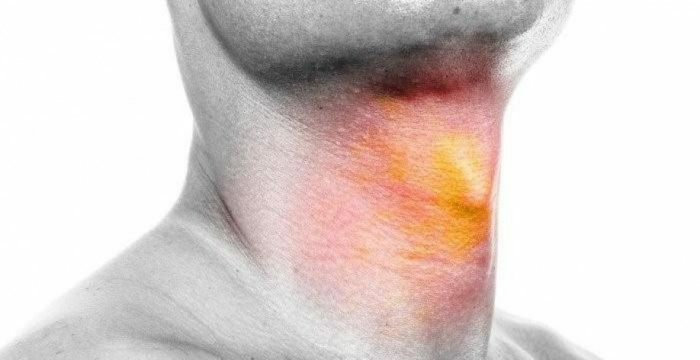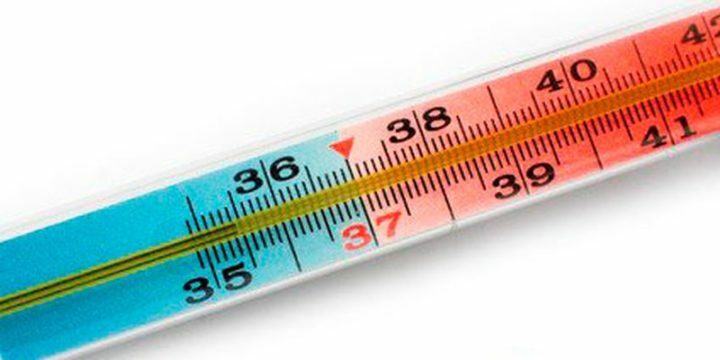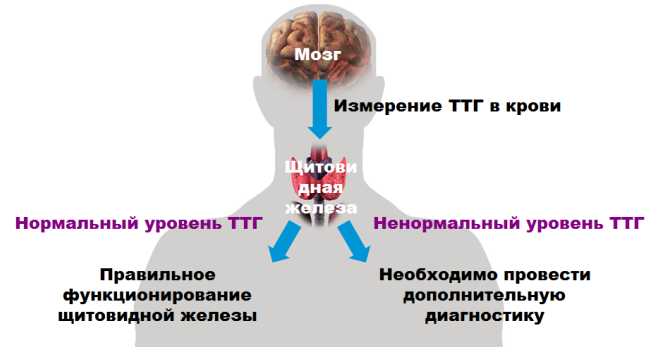Hyperthyroidism of the thyroid gland, or as it is also called - thyrotoxicosis, is a disease that is caused by an increase in the secretory function of the thyroid gland( thyroid) for the production of hormones. With this pathology, the amount of the hormone T4( triiodothyronine) as well as T3( thyroxine) increases in the bloodstream, and as a result, all the metabolic processes in the body begin to accelerate considerably.
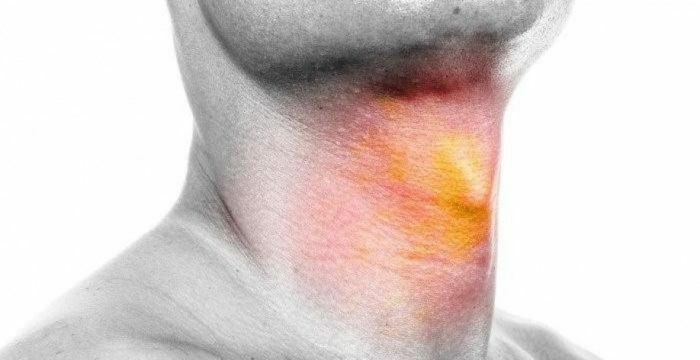
This disease, can be called the direct opposite of hypothyroidism, which implies a decrease in the functionality of the gland, and a slowdown in metabolic processes. More often, the symptoms of hyperthyroidism are found in young women.
Causes of the disease
It is commonly believed that the cause of hyperthyroidism may serve other changes, a pathological nature, in the thyroid gland. In 70-80% of cases of detection of this disease, it appears in goiter( diffuse-toxic).Directly for him, characteristic increase and uniform growth of the gland.
In this autoimmune disorder, antibodies are produced against TSH( thyroid-stimulating hormone) receptors, which is produced by the pituitary gland. There is a constant stimulation of the gland, because of what begins an increase in its size, and the production of an excess amount of thyroid hormones.
Thyrotoxicosis, also can occur with subacute thyroiditis( inflammatory process), which occurred after the transfer of acute viral disease. In this variant, it proceeds in a mild form and has a short-term character. The disease can last several weeks, and in some cases - several months.

Hyperfunction of the thyroid gland, can be caused and artificially. In this case, the appearance of thyrotoxicosis is due to the reception( more often uncontrolled) of thyroid hormones.
Symptoms of the disease
With excessive amounts of hormones T3 and T4 in the blood, we can identify the main symptoms of thyroid hyperthyroidism:
- Cardiovascular system. With hyperfunction of the gland, the heart rhythm is disturbed( flutter and atrial fibrillation, sinus tachycardia).Rhythm disturbances are poorly treated, and as a result, cardiac failure may occur. Also, not infrequently, there are jumps in blood pressure.
- CNS.From the side of the central nervous system, there are changes in the form of increased excitability, emotional imbalance, feelings of unreasonable fear and unreasonable anxiety, trembling of hands, insomnia, fast and indistinct speech.
- Gastrointestinal tract. There is a decrease( often, elderly patients completely refuse to eat), or vice versa, a strong increase in appetite. In the abdomen there are painful sensations. Violation of the production of bile, there is a loose stool.
- Ophthalmology. The eyeball with hyperthyroidism bulges out and shifts forward, its mobility( exophthalmos) is disturbed, the eye gap increases, and all these signs are characteristic symptoms of the disease. There is a swelling of the eyelids and a rare flashing, and also the patient notices the bifurcation of objects. In addition, there is tearing of the eyes or increased dryness, pain in the eyes, erosion of the cornea. As a result of squeezing the optic nerve, he undergoes dystrophy, which can lead to complete blindness.
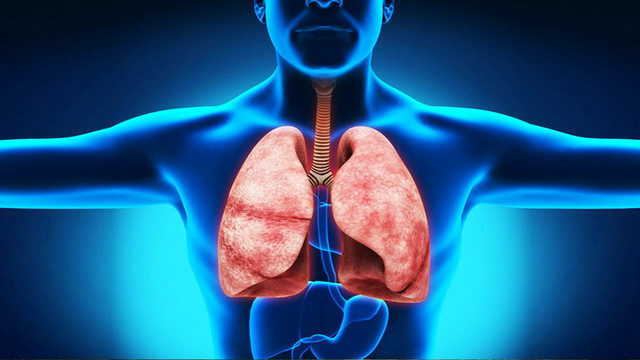
- Respiratory system. The formation of persistent shortness of breath occurs due to a decrease in lung volume, due to the occurrence of stagnant phenomena and edema.
- Sexual system. There may be infertility, due to a violation of the secretion of gonadotropins. Also, a violation of the monthly cycle in women is possible. Menstruation becomes painful, meager and irregular. They are accompanied by headaches and severe weakness, until the fainting condition. In some cases, amenorrhea( absence of menstruation) occurs. In men, often there is gynecomastia, there is a decrease in libido, and as a consequence - impotence occurs.
- Musculoskeletal system. Muscular weakness and fatigue are observed, which becomes chronic, muscle is hypotrophy. The trembling of the hands, and sometimes the whole body, becomes noticeable. Bones lose density and become brittle, which is a sign of osteoporosis. There may be a temporary muscle paralysis. These symptoms disappear when the treatment of hyperthyroidism begins.
- Metabolism. Against the background of increased appetite, a patient with thyrotoxicosis, significantly loses weight. The increased metabolism causes sweating and fever. There may be a deficiency of hormones synthesized by the adrenal cortex due to the rapid disintegration of cortisol. The liver appreciably increases, and at a serious current of a thyrotoxicosis, occurrence of an icterus quite often. Also, with thyroid gland hyperfunction, it is observed: thinning of the skin, hair and nails become thin and brittle, early gray hair appears, soft tissues of the body swell, thirst worries, urges to urinate become frequent, and the process - abundant( due to violation of water-saltexchange).

When examining the patient, you can see a thickening on the front of the neck. These are characteristic signs of hyperthyroidism, which indicate an increase in the thyroid gland.
Diagnosis
Hyperfunction of the thyroid gland is diagnosed, first of all, on complaints that applied for human help and its appearance, after which blood tests are assigned.
To confirm the presence of thyrotoxicosis, and to appoint the right treatment, it is necessary to know the level of thyroid hormones( T3 and T4), as well as the concentration in the blood of the hormone of the pituitary gland TSH.With thyrotoxicosis, the indicators of T3 and T4 will be too high, while the level of TSH - will be understated.
It is required, as additional measures of diagnosis, ultrasound examination of the gland. Ultrasound determines its size and the presence of formations in the form of nodes. If nodal formations are found, then CT( computer tomography) is appointed, to determine the location of their location. Also, a biopsy of the nodes is performed.
To assess the functional activity of the thyroid gland, radioisotope scintigraphy is prescribed.
Treatment of
In most cases, the treatment of thyroid hyperthyroidism is carried out by conservative methods, namely, with such medicines:
- if the gland is enlarged slightly, then drugs that suppress the excessive production of hormones are prescribed: "Mercazolil", "Tyrozol", "Metizol", "Tiamazol", "Propylthiouracil", "Carbimazole".The dosage of medicines is strictly determined by the attending physician, since exceeding the dose of the medicine can lead to undesirable consequences;
- to reduce the symptoms of thyrotoxicosis( pain in the heart, tachycardia, arrhythmia, pressure jumps), apply beta-blockers: Corvitol, Egilok, Talinolol, Anaprilin, Betaxolol, Atenolol, Bisoprolol, "Nibivolol" and others;
- "Endonorm" is prescribed when the disease is in the initial stage, to maintain the function of the thyroid;
- are absolutely indicated, in the treatment of thyrotoxicosis, soothing agents: Novo-Passit, Valoserdin, Persen. They can reduce nervousness, prevent nervous breakdowns and improve sleep quality;
- glucocorticosteroids, such as Dexamethasone and Prednisolone, are prescribed for adrenal insufficiency and for ophthalmopathy;
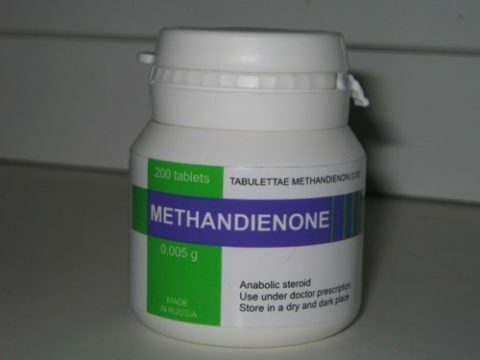
with obvious exhaustion, which can be accompanied by diarrhea and signs of intoxication, use anabolitics: "Methandienone" or "Methandriol."
Surgical treatment of
In hyperthyroidism, the appearance of nodes in the thyroid gland, as well as the growth of individual parts of it. The detection of such a pathology, is a direct indication for the surgical intervention, the removal of a part of the thyroid gland or individual nodal formations.
As a rule, the part of the thyroid that has remained after resection is restored and begins to function normally. But, if most of the gland was removed, then development in the future of hypothyroidism( deficiency of thyroid hormones) is possible. In this case, the patient will have to take synthetic thyroid hormones for life.
Treatment with radioiodine
The meaning of radioiodine therapy, in hyperthyroidism, is that when a radioactive iodine enters the cells of the gland, its accumulation takes place, after which the thyroid cells begin to disintegrate. The process of destruction can take several weeks. The result of such an impact is a decrease in thyroid function in size, as well as a decrease in the concentration of hormones in the bloodstream.
Radioactive iodine is prescribed in combination with other drugs. It is taken in the form of a capsule or an aqueous solution once. It has no taste, no smell.
With such treatment, the patient will not be fully recovered. The disease remains, only in a less pronounced form. Sometimes, after a while, a repetition of the procedure is required.
Very often, as a consequence of the treatment with radioactive iodine, there is a state of hypothyroidism, which can only be compensated by therapy( lifelong) with synthetic thyroid hormones.
Prognosis and prevention
The thyrotoxicosis, the symptoms and treatment of which have been described above, is a disease that is difficult to treat. Often, the patient has throughout life to take drugs that reduce the secretion of the gland, or, as mentioned above, with a decrease in thyroid function, to take synthetic hormones. In any case, it is required to be constantly monitored by a doctor and, if necessary, to introduce an adjustment to the treatment.
Preventive measures should be aimed at timely treatment of any abnormalities in the thyroid gland, eating foods with iodine content and adherence to the rules of proper nutrition.

